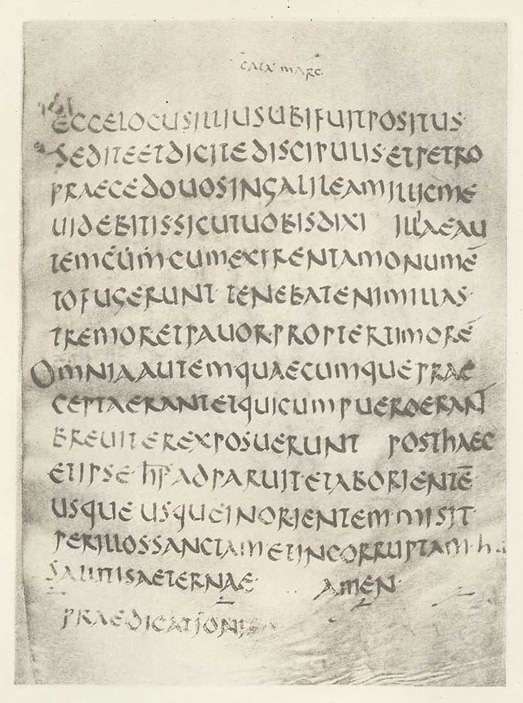 M* asks: “How do you explain how any of Jesus’ disciples, who were most likely illiterate, as most simple people were back then, would have learned how to write in Koine Greek?”
M* asks: “How do you explain how any of Jesus’ disciples, who were most likely illiterate, as most simple people were back then, would have learned how to write in Koine Greek?”
There are two ways to respond to any challenging question: one is to refute it by denying the premises in the question and the other is to concede the premises of the question and the truth of the conclusion, but show that the alleged problem still does not exist.
Here is the informal argument behind the question:
- To write a book in a language one must be literate in that language.
- It is implausible that the disciples were literate in Greek given the educational levels in the area and the language usage in Galilee.
- The Gospels are written in Greek.
- Conclusion: The disciples probably did not write the Gospels.
- Secondary conclusion: 4 is important to either inspiration or historicity of the Jesus story.
A normal response is to show that it is possible that the disciples were literate (in Greek) and that some of the disciples almost certainly were literate: Luke as a physician, Matthew as a tax collector. Most simple people don’t or can’t follow a preacher about the countryside. The disciples were able and willing to do something unusual. Premise 2 is not definitive.
Second, scribes were used in the ancient world and were easily available. Premise 1 is false. One could write a book and be illiterate in the language in which the book is first published. For example, I could dictate a book to a Russian in English and the Russian could take my English sentences and translate them into Russian. Of course, this means that the scribe would be part of the composition team, but we have always known that about Paul’s letters.
One can look at the Greek in the Gospel of John and in Revelation and account for (at least some) of the linguistic differences by postulating that John had different scribes in both cases. The Gospel is a more polished work, while Revelation, written in exile on an island, is very rough.
One could also challenge the idea that the Gospels in original form were written in Greek. There is an ancient tradition that Matthew was first written in Aramaic (or perhaps Hebrew) that still has some support. If so, then 3 is at least partially false.
However, suppose a skeptic really likes this argument and so insists by counter-arguments that premises 1, 2, 3 are almost surely true. Discussions of this sort can go on for a long time. Sadly for the skeptic, the strong conclusion 5 does not follow from conclusion 4. As a result, discussing the plausibility of the premises is not even necessary for the Gospels to be interesting sources of history.
The disciples could have not written the Gospels (either by dictating to a scribe or with their own hand) and this would not impact the historicity or inspiration of the accounts in a sense meaningful to orthodox Christians.
How is this possible?
The gospels are attributed to a particular disciple (follower of Jesus): Matthew, Mark, Luke, John. Most traditional Christians have held that each disciple had sources such as the apostle Peter for Mark. Christians have always believed the younger man, Mark, was speaking what he had heard from other witnesses and had seen himself. In other words, Mark worked with at least some other people.
Given that Mark appears to have been from a wealthier, more urban background, many arguments for the general illiteracy of the disciples do not apply to him. However, assume Mark is illiterate. Assume Mark did not dictate the Gospel to a scribe.
He still could have produced a Gospel according to Mark. We need merely assume a church community (say Alexandria) where Mark came to work gathered Mark’s sermons and teachings into a corpus. As the apostles and eye witnesses to Jesus grew older, this would have been a natural process. For example, I have seen this in my own career. As the founding generation of an institution ages, the younger members of the group become eager to record “oral history.” Scholars are deployed to take down their words. A city like Alexandria (where Mark traditionally spent much of his life) was full of literate scholars.
The Gospel according to Mark would then be the product of a community of scholar and scribes according to the teachings of the eye witnesses. While Mark was alive, that community could check the text with the person who inspired the collection. The product would be a Gospel according to Mark. Even leaving aside the idea of the Holy Spirit guiding the work of this community and of Mark himself, this strikes me as a great way to get a trustworthy account. The community would keep working on the Gospel and Mark could check with his sources and memory to make sure the account was right. Finally, either the work would be deemed good enough or the book of Mark would die.
I am not asserting that this is actually what happened, just that it is a plausible account of how an illiterate person could be responsible for the content of a text (in terms of history and ideas) without writing it himself or even dictating the text. In fact, the church to this day has collected sermons preached by leaders and published them and translated them. We would then think of a Mark-community and not a single author.
The literacy of the speaker is inconsequential and the community produced text would still be valuable as history. Translations may have peril when it comes to nuance and deep ideas, but seem less troublesome when it comes to historical facts. If Mark asserts, “Jesus did X,” in Aramaic, a translation in any language could get the fact of what Mark said right especially if an entire community and Mark were working with the translator.
As a result, if 4 is true, 5 does not follow and even if all the disciples were illiterate (dubious) and had no scribes (very dubious), their eye witness accounts could have been faithfully preserved.
————————-
*M has asked that I not reveal his or her name. I will write as if “he” is a male, but this is for convenience in the future. Here question 37.
















